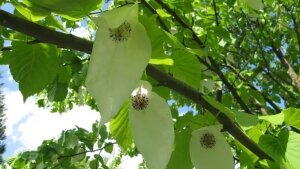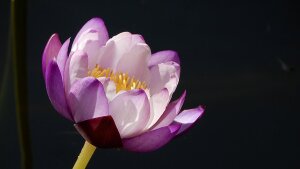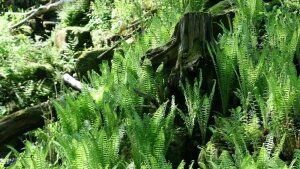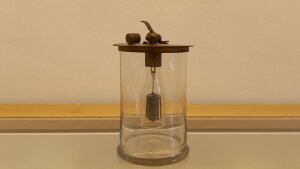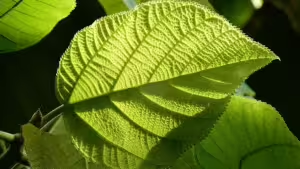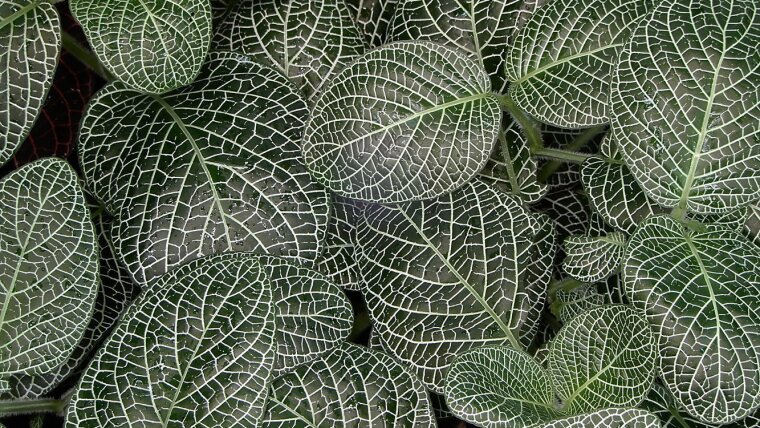
In 1821, Goethe outlined the course of his scientific development. In key words, he relates his own life to the dynamic progression of natural science between 1750 and 1820, emphasizing what he owed to the scientific community of his era:
»How fortunate to have lived through the second half of the last century.
(Schönes Glück die zweite Hälfte des vorigen Jahrhunderts durchlebt zu haben.)
Great advantage to have been at the same time as great discoveries.
(Großer Vortheil gleichzeitig mit großen Entdeckungen gewesen zu sein.)
You regard them as brothers, sisters, relatives even as daughters and sons, as far as you yourself have contributed.
(Man sieht sie an als Brüder, Schwestern, Verwandte, ja in so fern man selbst mitwirkt, als Töchter und Söhne.)
Shortly before my birth, electricity aroused new interest.
(Kurz vor meiner Geburt erregte die Elektricität neues Interesse.)
Expansion of this chapter.
(Erweiterung dieses Capitels.)
Attempt at theorizing perspectives.
(Versuch theoretischer Ansichten.)
Invention of the lightning rod.
(Erfindung der Wetterableiter.)
Joy of the frightened people over it.
(Freude der geängstigten Menschen darüber.)
Disturbed by the Lisbon earthquake.
(Gestört durch das Erdbeben von Lissabon.)
Family friend, turned towards electricity.
(Hausfreund, gegen Elektricität gewendet.)
My own childish efforts.
(Eigene kindische Bemühungen.)
Very soon turned towards visible nature.
(Sehr bald gegen die sichtbare Natur gewendet.)
Not a particularly sharp vision.
(Kein eigentlich scharfes Gesicht.)
Hence the gift of seeing the objects with grace.
(Daher die Gabe die Gegenstände anmuthig zu sehen.)
Growing objectivity.
(Wachsende Objectivität.)
Attention to the sunset.
(Aufmerksamkeit auf Sonnenuntergang.)
The colorfully ebbing light.
(Die farbig-abklingende Helle.)
Colored shadows.
(Farbige Schatten.)
Other natural phenomena.
(Andere Naturphänomene.)
Rainbow.
(Regenbogen.)
Actually a dark circle with colored rims.
(Eigentlich ein dunkler Kreis mit farbigen Säumen.)
In Leipzig, Winkler’s physics.
(In Leipzig Winklers Physik.)
At home, alchemical experimentation.
(Zu Hause alchemistisches Tasten.)
Long break filled with youthful passions.
(Große Pause durch jugendliche Leidenschaften ausgefüllt.)
Actual beginning.
(Eigentliches Beginnen.)
In Weimar.
(In Weimar.)
[…]
Great advantage of successive understanding.
(Großer Vortheil des successiven Erkennens.)
[…]
Advantage of not being a professional.
(Vortheil nicht vom Metier zu sein.)
One must not cling to the old, nor reject the new, nor envy it.
(Man hat nichts Altes festzuhalten, das Neue nicht abzulehnen, noch zu beneiden.)
I always sought to master the simplest phenomena and awaited multiplicity from others.
(Ich suchte mich jedesmal der einfachsten Erscheinung zu bemeistern und erwartete die Mannichfaltigkeit von andern.) [...]« (WA II 9, 299 ff.])
A few years later, we find the following entry in Eckermann’s "Conversations with Goethe in the Last Years of His Life", dated February 1, 1827:
»If I have done anything with respect to the subjects which lay in my way, I had this advantage, that my life fell in a time that was richer than any other in great natural discoveries. [...] Thus through my whole life, down to the present hour, has one great discovery followed another, so that I was not only directed towards nature in my early years, but my interest in it has been maintained in it ever since.« (Conversations of Goethe with Eckermann, translated by John Oxenfort, London 1850)
